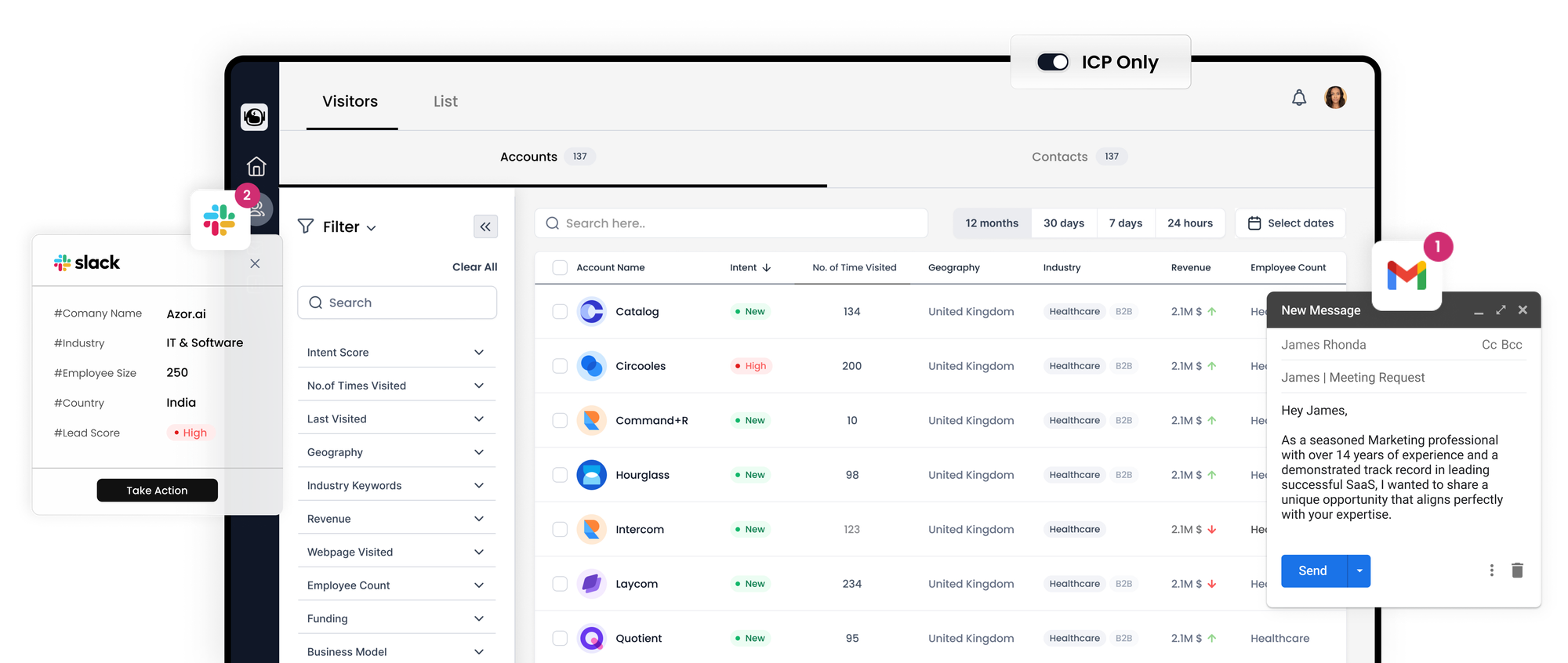Understanding Website Visitor Tracking: A Comprehensive Overview

Website visitor tracking is the practice of monitoring and analyzing the activities and behaviors of individuals who visit a website. This process yields valuable insights that can be leveraged by marketing and sales teams to refine their strategies and generate high-quality leads. Furthermore, it contributes to enhancing the overall user experience (UX) by identifying the strengths and weaknesses of specific web pages.
By examining the behavior and demographics of website visitors, businesses can make informed decisions to improve conversion rates, optimize digital advertising expenditure, and consistently increase the number of visitors to their site. Below, we delve into the importance of website visitor tracking, the types of visitor activity that should be monitored, an overview of website visitor tracking software, and its compliance with privacy regulations.

Importance of Tracking Website Visitors
Website visitor tracking offers businesses a deeper understanding of potential customers and their responses to content. It enables teams to collect detailed visitor information, including company names and contact details, which can be used to nurture warm leads, thereby streamlining sales efforts and reducing reliance on cold calling.
From a marketing and UX perspective, website tracking aids in assessing the effectiveness of strategies and content. It helps media platforms identify which content resonates with their audience and allows online stores to pinpoint the exact moment customers abandon their shopping carts or face issues during the checkout process.
Many tracking tools provide user flow data, illustrating how visitors navigate a website and move from page to page. This data reflects a website's current success rate and highlights areas that require improvement or a complete overhaul.
Key Takeaway
Tracking website visitors enables businesses to gather contact information for other marketing campaigns and improve user experience, which drives more conversions.
Visitor Activity to Track
Website visitor tracking encompasses various types of data, including visitor identification, user behavior, and overall performance analytics. Depending on a company's objectives, it is essential to consider tracking the following types of information:
- Visitor locations, demographics, and potentially company details and contact information.
- Click rates and user flow.
- Overall page traffic.
- Bounce rates.
- Sources of web traffic.
Tracking these categories can inform marketing efforts, revealing which elements are most appealing to users, guiding content optimization, and providing valuable insights for sales teams.
Website Visitor Tracking Software
Website visitor tracking software typically focuses on three core areas: website analytics, user behavior analysis, and visitor identification. These areas provide actionable insights tailored to a business's goals and can be shared across departments to maximize return on investment (ROI). Some software options integrate seamlessly with Customer Relationship Management (CRM) platforms.
How It Works
Website visitor tracking software utilizes either a reverse domain name system (rDNS) or website scripts to gather data. By combining such software with existing tools, businesses can enhance lead data stored in CRMs, gain a more comprehensive understanding of prospects, and even receive alerts when high-potential customers visit their site.
Reverse Domain Name System (rDNS)
This method analyzes users' IP addresses to collect information about their web activity, similar to searching for a phone number in a Rolodex but applied to internet traffic.
Website Script
Some tracking software installs scripts on websites to automatically collect user data, potentially revealing details about visiting companies, including addresses, websites, social media profiles, and relevant contacts.
Compliance with Privacy Regulations
In the European Union (EU), the General Data Protection Regulation (GDPR) mandates that website tracking requires the explicit consent of visitors. Non-compliance may result in substantial fines. To adhere to GDPR guidelines, businesses must display privacy, terms of use, and cookies policies prominently, explaining how visitor information is collected and for what purposes.
In the United States, while there is no federal law addressing website tracking, individual states like California, Colorado, Connecticut, Utah, and Virginia have enacted privacy laws. To avoid potential violations, businesses should have appropriate policies in place and obtain user consent before utilizing website visitor tracking software.
Popular Website Visitor Tracking Software
The choice of website visitor tracking software depends on the data a business seeks to collect, its budget, and specific requirements. Here are some popular options, categorized by their primary focus:
Analytics
- Google Analytics
- Kissmetrics
- Woopra
Behavior
- Crazy Egg
- Mixpanel
- UserTesting
Visitor Identity
- Revmonk
- Lead Forensics
- Act-On
Conclusion
Website visitor tracking is a crucial tool for gaining insights into customer behavior and preferences. When used ethically and in compliance with privacy regulations, it can help businesses enhance their marketing, sales, and product development efforts. By tracking and analyzing visitor data, organizations can improve engagement, boost conversions, and gain a deeper understanding of their customer base.
